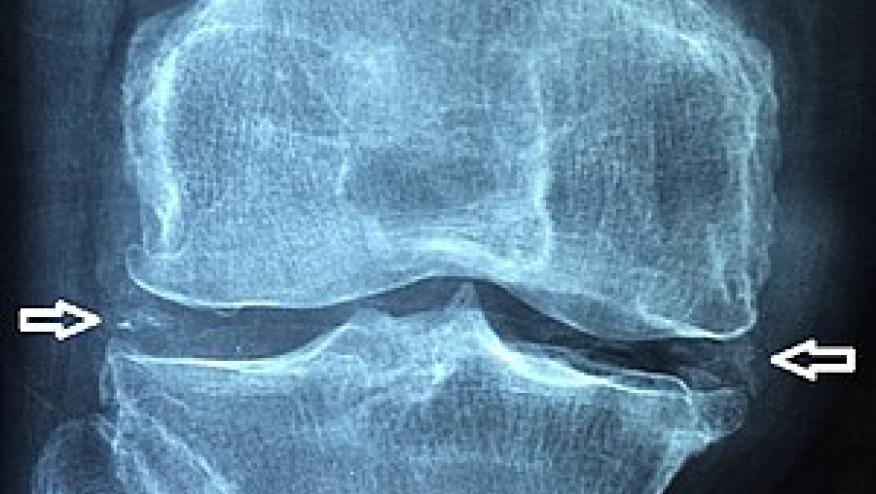Chondrocalcinosis Increases Osteoarthritis Risk Save

Analysis of data from two large, prospective cohort studies show that knee chondrocalcinosis was associated with an increased risk of incident knee osteoarthritis.
Chondrocalcinosis is not thought to be a requisite feature of OA, but is often found to associate with osteoarthritis development. Chondrocalcinosis and the presence of calcium pyrophosphate crystals in cartilage, may accelerate cartilage breakdown and joint damage. This study specifically examined whether if chondrocalcinosis before radiographic osteoarthritis may further contribute to the development of OA.
The role of chondrocalcinosis was investigated as a potential risk factor for incident knee osteoarthritis and knee pain using data from in 2 large longitudinal cohorts: the Rotterdam Study (RS) and the Multicenter Osteoarthritis Study (MOST). There was 20-year follow-up data from 3737 participants in RS and 7-year follow-up data from 2750 in MOST.
Chondrocalcinosis was found in 5% of osteoarthritis-free participants at baseline. It was significantly associated with incident knee osteoarthritis in both cohorts (pooled odds ratio [OR]: 1.75, 95% CI: 1.35-2.27, P < .001), with significance maintained in KLG = 0 participants (pooled OR: 1.77, 95% CI: 1.04-3.01, P = .035).
There was no consistent association between chondrocalcinosis and with incident knee pain.
These findings suggest that chondrocalcinosis may contribute to osteoarthritis risk and may represent a distinct disease subgroup of OA patients, wherein targeted prevention and treatment strategies may be developed.
ADD THE FIRST COMMENT
Disclosures
The author has no conflicts of interest to disclose related to this subject










If you are a health practitioner, you may Login/Register to comment.
Due to the nature of these comment forums, only health practitioners are allowed to comment at this time.